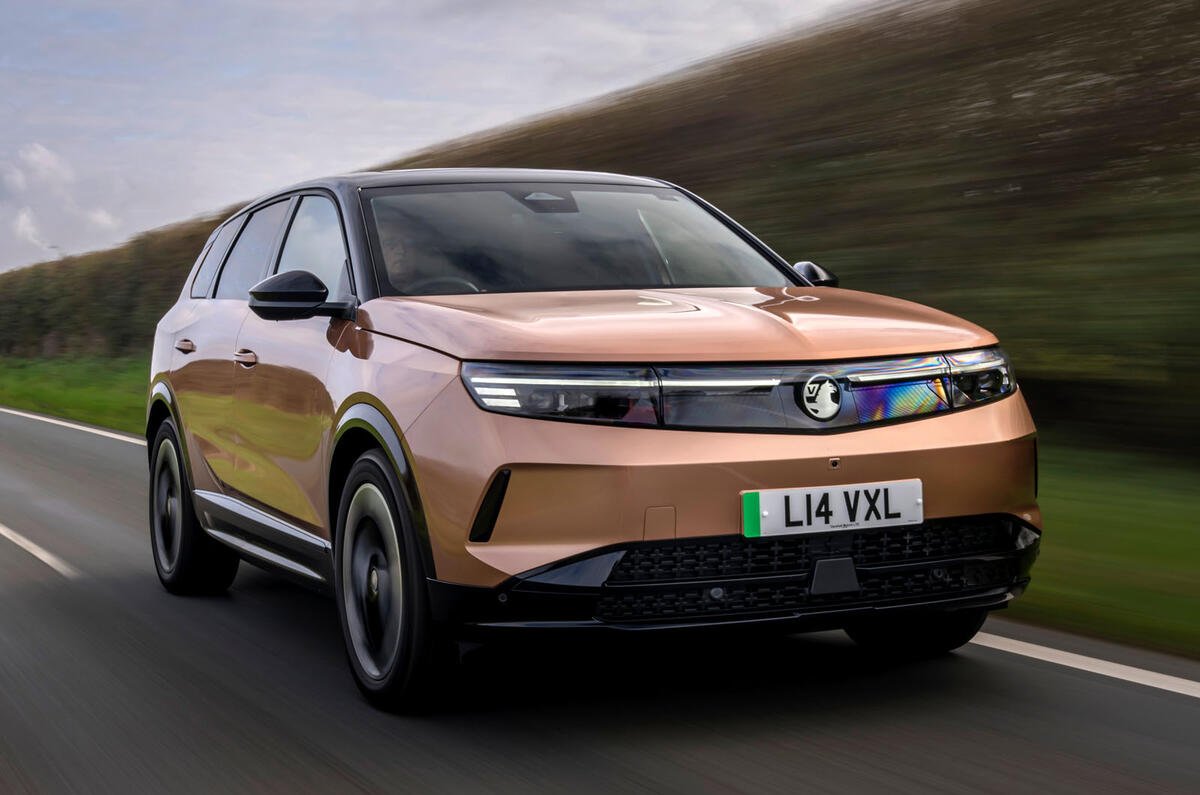Vauxhall has cut the price of the range-topping Ultimate versions of its Astra Sports Tourer and Grandland electric cars to below £40,000.
The move means all of the brand’s EVs, bar the van-based Vivaro Life Electric, swerve changes to vehicle excise duty (VED) that would have cost a driver an extra £2125 over the first six years of their car’s life.
From 1 April 2025, EV owners will be charged Vehicle Excise Duty (VED, or ‘road tax’) for the first time, costing the same flat rate of £195 that combustion-engined cars built after 1 April 2025 are charged.
Related articles
- Official: Nissan to gain Renault Twingo-based city car in 2026
- The longest-range electric cars
- Dacia Spring vs Leapmotor T03: UK's cheapest EVs face off
- Hot new Skoda Elroq vRS to be revealed next week
- Vauxhall Grandland Electric review
This also means owners of EVs with a list price of more than £40,000 – including the cost of optional extras such as paint – will be hit by the Expensive Car Supplement (ECS).
This is an annual charge of £425 per year for five years after the second year the car is registered, on top of the regular VED charge.
This brings a significant increase in cost over the first six years of an expensive car’s life: the owner of a car under £40,000 will pay £1170 in VED over that period, whereas the owner of one over that limit will pay £3295.
Therefore owners of cars costing more than £40,000 face paying an extra £2125 in tax over the first six years.
According to data from analyst Jato Dynamics, the £40,000 threshold – which was set in 2017 – is £8559 lower than the current average price of an EV.
Industry critics of the ECS argue that because the policy was designed so long ago and before the popularisation of EVs, it no longer reflects what is an ‘expensive car’ in the real world.
“The threshold for the ECS – dubbed the ‘luxury car tax’ when launched – has remained unchanged at £40,000 since it was set eight years ago, when the overall market was 30% larger than today and BEVs barely featured,” said Mike Hawes, chief of the Society of Motor Manufacturers and Traders.
Eurig Druce, acting managing director of Vauxhall, said: “The threshold for the Expensive Car Supplement has remained at £40,000 since inception in 2017, despite subsequent high levels of inflation. If it were to have risen with inflation, it would now be around £52,000.
“With the average price of an EV in the UK at around £48,000, this new tax means that customers buying some of the more attainable electric cars on the market are now being penalised whilst at the same time we’re trying to move as many British motorists to electric as quickly as possible.”
Latest Reviews
Rivian R1T
Rivian R1T
MG 4 XPower
MG 4 XPower
DS 3 review
DS 3 review
Ford Ranger Raptor
Ford Ranger Raptor
Skoda Enyaq
Skoda Enyaq
Read our review
Car review
Vauxhall Grandland Electric
All-new second generation of Vauxhall's big family SUV gains an electric variant with a 325-mile range
Read our review
Druce added that “we’d urge the government to reconsider this new measure” to incentivise sales of EVs.
Join our WhatsApp community and be the first to read about the latest news and reviews wowing the car world. Our community is the best, easiest and most direct place to tap into the minds of Autocar, and if you join you’ll also be treated to unique WhatsApp content. You can leave at any time after joining – check our full privacy policy here.

